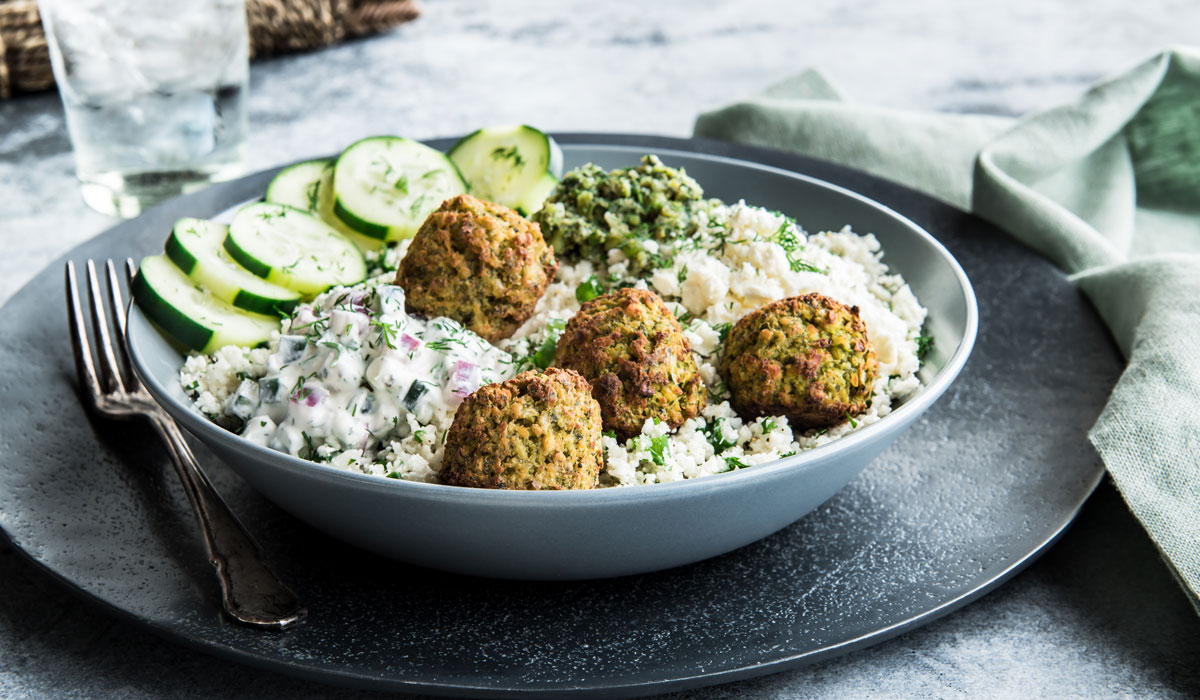A decline in single-person checks, along with delivery disruption and discounting headwinds, has 254-unit Zoës Kitchen reevaluating its restaurant base. Notably, the Mediterranean fast casual plans to slow unit growth in fiscal 2019 and could close some underperforming and older restaurants. While still in the early stages, Zoës intends “to more thoroughly evaluate our existing fleet of restaurants … we have identified a handful of older restaurants approaching the end of their lease term that we may prefer to close when the lease expires and other locations that we may decide to close prior to the end of the lease term,” chief executive officer Kevin Miles said in a May 24 conference call.
Sunil Doshi, Zoës’ CFO, said the chain has identified five to 10 locations “where we may choose, if it makes economic sense, to close at or prior to lease expiration.”
The news came as Zoës reported a rough first quarter to start the fiscal calendar. Same-store sales declined 2.3 percent, driven by a 4.4 percent decrease in transactions and product mix, partially offset by a 2.1 percent lift in price. Zoe’s had a net loss of $3.6 million, or 19 cents a share, versus a profit of $19,000, or zero cents a share, in the year-ago period. Revenues upped 12.7 percent to $102.1 million from $90.6.
The brand also downgraded its outlook for 2018, calling for revenue between $345–$352 million, down from previous expectations of $358–$368 million. Zoës estimated comps to drop 2–4 percent for the year versus an earlier prediction of flat to 2 percent higher. Wall Street hammered Zoës stock in response, with shares plunging as much as 27 percent in pre-market movement May 25.
The company still expects to open 25 new units in fiscal 2018 (11 debuted in the first quarter), but only 35 total are forecast for fiscal 2018 and 2019 combined. And there could be a slight degree of timing push between some originally scheduled to open late 2018 and early 2019.
In addition to the closures and slowed unit growth, Zoës is revaluating the corporate-franchise structure of its expansion. The chain currently has a single franchisee (only three of the 254 units are currently franchised). However, Miles said Zoës’ “progress over the past few years in developing our brand, menu, store design, and digital capabilities makes franchising a logical strategic choice to consider as a complement to our own company store growth.”
For the remainder of the fiscal year, Zoës will spend time developing a franchising strategy, Miles said. The chain’s board took a broad review as well to ensure “that we are considering all avenues to maximize shareholder value,” Miles added.
In this, the board formed a special committee of independent directors to consider strategic alternatives—a term that could mean a bevy of things. Miles said the company has no specific alternatives under consideration at the present time.
As the brand moves to redefine its footprint, Miles stressed that it would remain laser-focused on growing revenue and regaining traction in same-store sales.
About 500 sales days were impacted due to weather in the quarter, but there are more consistent issues at hand. Single-person checks, or those that are typically less than $10, make up less than 30 percent of Zoës’ transaction base. Yet underperformance in this group is perhaps the biggest culprit for its comps decline.
Miles said Zoës is working to better tell its value story. “Whether it was in our menu board change or our premium offerings, we need to take a harder look at that and make sure we’re communicating with a much louder voice going forward,” he said.
Doshi said the single-person check decline was not a first-quarter phenomenon. Zoës has seen this building for a few quarters.
“Our approach though in the short term is we don’t want to discount our way to get the traffic back, and we’ll look to communicate better the value that we do have in the menu at those price points as well as innovate within the menu,” he said.
Zoës plans to increase its marketing spend, which has historically averaged 1.2 percent of sales, in an effort to boost brand awareness and trial to increase transactions.
Despite the challenges, Miles said Zoës made progress on some long-term strategic initiatives in the quarter. In Q1, the brand launched a new baked falafel and three fresh family meal options. The moves were designed to increase Zoës dinner daypart, which is 40 percent of the company’s non-catering sales.
Digital comps were 26 percent positive in the quarter. Early in Q2, Zoës relaunched and upgraded its loyalty program, “which we expected to help drive traffic by making it easier and clearer for our guests to earn and redeem rewards,” Miles said.
Delivery sales grew in non-catering and catering businesses by 155 percent. Catering delivery in being executed in 30 percent of restaurants. Miles said Zoës wants to expand internal catering delivery to the full chain by the end of June, and will hire 500–600 drives in the process.
“Within our non-catering lunch and dinner day part, we plan to engage select partners to expand the number of locations that offer delivery, and we’ll integrate delivery services into our digital platform later this year,” Miles said. “We believe the strategic initiatives we’re investing in are the right ones, and we’re pleased to see that they’re generating positive results.”
“However, we also believe we need to take a more aggressive step to strengthen our existing restaurant base, channeling our efforts into recouping traffic losses, reversing our negative comp store sales trends and improving restaurant level profitability, thereby, enhancing shareholder value,” he added.






